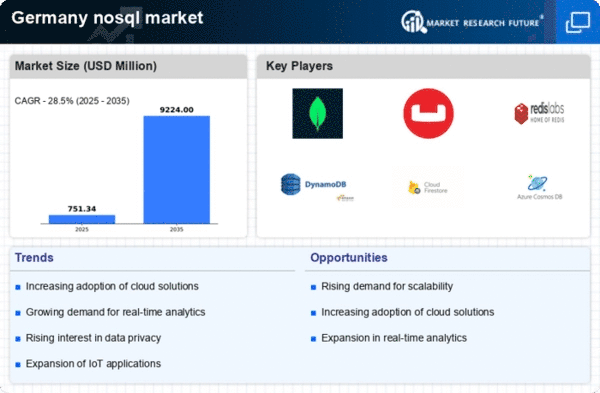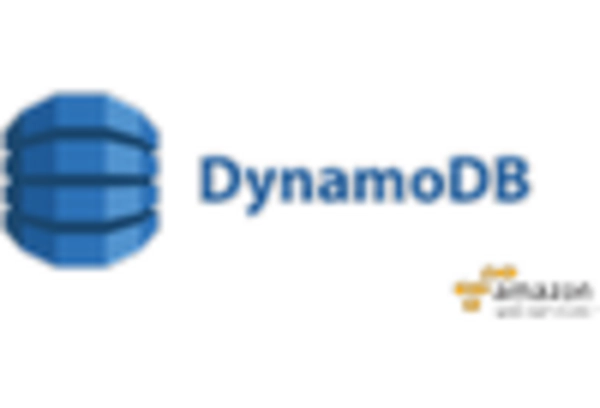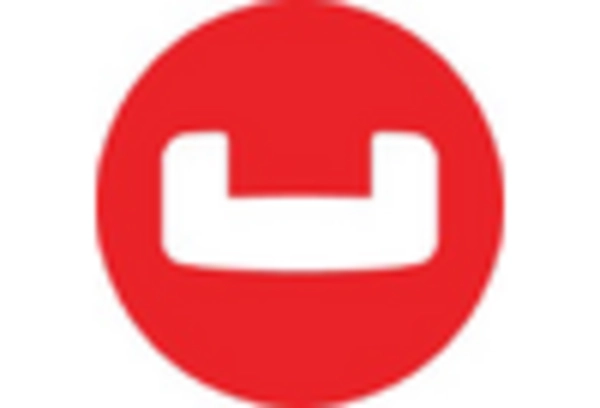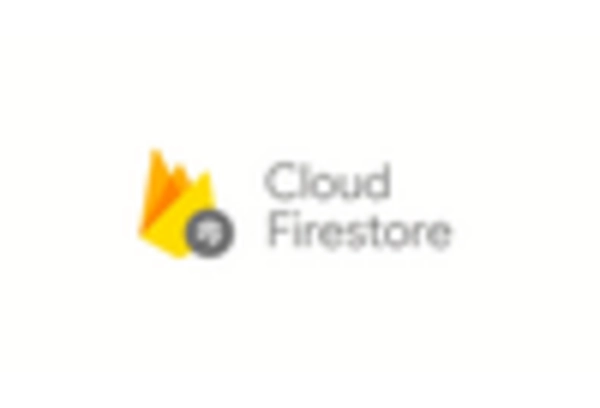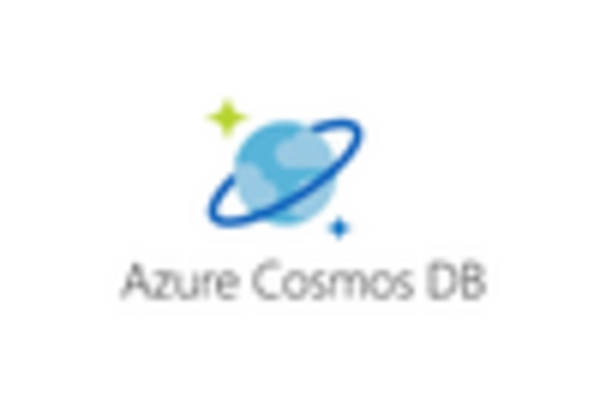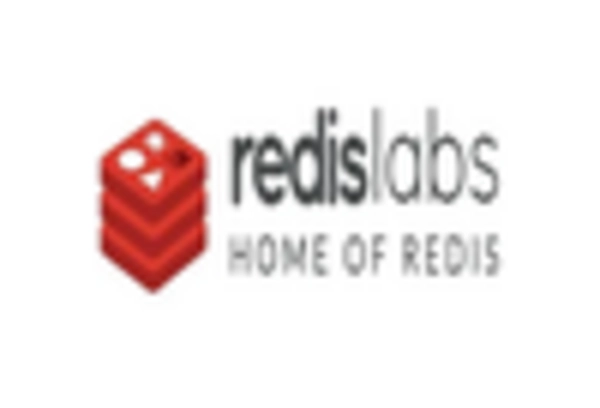Expansion of Big Data Analytics
The nosql market in Germany is significantly influenced by the expansion of big data analytics. As organizations generate and collect vast amounts of data, the necessity for robust storage solutions that can efficiently manage and analyze this data becomes increasingly critical. Nosql databases, known for their scalability and flexibility, are well-suited to accommodate the diverse data types and structures associated with big data. Recent reports indicate that the big data analytics market in Germany is expected to reach €5 billion by 2026, with a substantial portion of this growth attributed to the adoption of nosql technologies. This trend suggests that businesses are recognizing the value of leveraging advanced analytics to gain insights and drive innovation, thereby propelling the nosql market forward.
Increased Focus on Data Integration
In the context of the nosql market, the increased focus on data integration is a pivotal driver shaping its landscape in Germany. Organizations are increasingly seeking solutions that enable seamless integration of disparate data sources, which is essential for comprehensive analytics and reporting. Nosql databases offer the flexibility required to integrate structured and unstructured data from various platforms, thereby enhancing data accessibility and usability. As companies strive to create unified data ecosystems, the demand for nosql solutions that facilitate this integration is likely to rise. Industry analysts project that the data integration market will grow by approximately 20% annually, underscoring the potential for nosql technologies to play a crucial role in this evolution.
Emergence of Hybrid Cloud Environments
The emergence of hybrid cloud environments is a significant driver impacting the nosql market in Germany. As organizations increasingly adopt hybrid cloud strategies to balance on-premises and cloud resources, the need for databases that can operate seamlessly across these environments becomes critical. Nosql databases, with their inherent flexibility and scalability, are well-positioned to support hybrid architectures, allowing businesses to optimize their data management strategies. Industry reports suggest that the hybrid cloud market is expected to grow at a CAGR of around 30% over the next few years, indicating a robust opportunity for nosql technologies to cater to this evolving landscape. This trend highlights the importance of adaptable data solutions in meeting the diverse needs of organizations operating in hybrid cloud settings.
Rising Demand for Real-Time Data Processing
The nosql market in Germany experiences a notable surge in demand for real-time data processing capabilities. As businesses increasingly rely on instantaneous data insights to drive decision-making, the need for nosql databases that can handle high-velocity data streams becomes paramount. This trend is particularly evident in sectors such as finance and e-commerce, where timely information can significantly impact operational efficiency and customer satisfaction. According to recent estimates, the real-time data processing segment is projected to grow at a CAGR of approximately 25% over the next five years. Consequently, the nosql market is likely to see a corresponding increase in the adoption of technologies that facilitate real-time analytics, thereby enhancing the overall competitiveness of organizations in Germany.
Growing Adoption of Internet of Things (IoT)
The nosql market in Germany is poised for growth due to the increasing adoption of Internet of Things (IoT) technologies. As more devices become interconnected, the volume of data generated is expected to escalate dramatically. Nosql databases are particularly adept at handling the diverse and voluminous data produced by IoT applications, making them an attractive choice for businesses looking to harness this data for operational insights. Recent forecasts suggest that the IoT market in Germany could exceed €10 billion by 2027, with a significant portion of this growth driving demand for nosql solutions. This trend indicates that organizations are recognizing the necessity of scalable and flexible data management systems to support their IoT initiatives, thereby enhancing the relevance of the nosql market.


